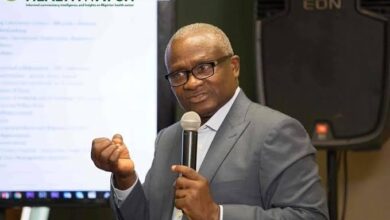COVID-19 Deaths In Africa Surge As Hospitals Reach ‘Breaking Point’ – WHO
The World Health Organisation (WHO) has expressed worry over the increased rate of Covid-19 deaths in what it described as the fastest surge the continent has recorded since the onset of the pandemic
Dr. Matshidiso Moeti, WHO Regional Director for Africa hinted this during a virtual press conference today facilitated by APO Group.
TheFact Nigeria gathered that the resurgence was because the public had let down their guard in observing public health measures such as wearing of facemask, social distancing and hand hygiene.
Reports from the WHO showed that Africa recorded a 43% week-on-week rise in COVID-19 deaths with hospital admissions increasing rapidly and countries facing shortages in oxygen and intensive care beds.
According to a recent data released by the Organisation, Africa is now less than 1% shy of the weekly peak reached in January when 6294 deaths were recorded.
Countries worst hit by the resurgence, Namibia, South Africa, Tunisia, Uganda and Zambia accounted for 83% of the new deaths recorded in the past week.
Dr. Moeti hinted that:
“Deaths have climbed steeply for the past five weeks. This is a clear warning sign that hospitals in the most impacted countries are reaching a breaking point.
“Under-resourced health systems in countries are facing dire shortages of the health workers, supplies, equipment and infrastructure needed to provide care to severely ill COVID-19 patients,” she said.
The Delta variant, which is currently the most transmissible of all variants, has been detected in 21 African countries, while the Alpha variant is in 35 countries and Beta in 30.
Hospital admissions in around 10 countries have increased rapidly and at least six countries are facing shortages of intensive care unit beds. Demand for medical oxygen has spiked and is now estimated to be 50% higher than at the same time in 2020, yet supply has not kept up.
A rapid WHO assessment of six countries facing a resurgence found that just 27% of the medical oxygen needed is produced.
Dr. Moeti emphasised the need for oxygen supply saying that:
“The number one priority for African countries is boosting oxygen production to give critically ill patients a fighting chance.
“Effective treatment is the last line of defence against COVID-19 and it must not crumble,” she warned.
Insufficient quantity, disrepair or poor maintenance of production plants as well as challenges in distribution, scarcity of cylinders, personnel or technical skills are among the barriers to adequate medical oxygen supply in Africa.
WHO has shown its support by working with countries to improve COVID-19 treatment and critical care capacities by providing guidance on clinical management and support to update protocols and train health workers.
Along with partners, the organisation has also delivered essential medical supplies, such as oxygen cylinders and has supported the manufacture and repair of oxygen production plants.
The rise in cases comes amid inadequate vaccine supplies. The continent has vaccinated 52 million people since the start of the vaccine rollout in March this year, accounting for just 1.6% of the 3.5 billion people vaccinated worldwide.
Only 18 million people in Africa are fully vaccinated, representing 1.5% of the continent’s population compared with over 50% in some high-income countries.
“The double barrier of vaccine scarcity and treatment challenges is seriously undermining effective response to the surging pandemic.
“However, with the expected fresh vaccine shipments and strong preventive measures, we can still turn the tide against the virus,” said Dr. Moeti.
Additional vaccines supplies expected in the coming weeks and months will help shore up the vaccination rates. Around 190 million extra COVID-19 vaccine doses will be needed to fully vaccinate 10% of the Africa’s population by September 2021, with around 750 million more doses needed to fully vaccinate 30% by the end of 2021.
Other speakers at the conference included: Dr. Jean-Jacques Mbungani Mbanda, Minister of Public Health, Hygiene and Prevention, Democratic Republic of the Congo, and Dr. Ishmael Katjitae, Physician Specialist, Ministry of Health and Social Services, Namibia.






